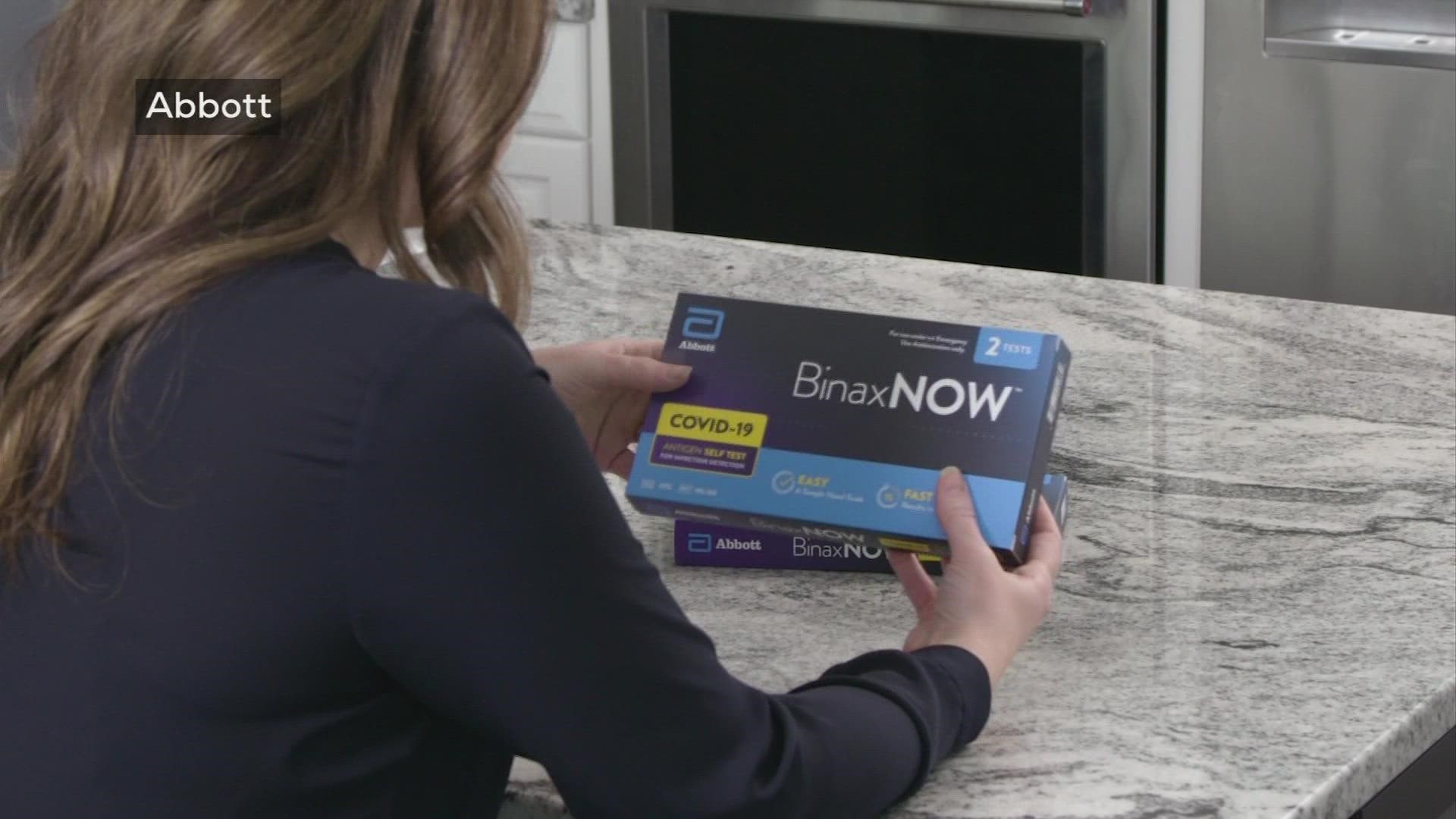COLUMBUS, Ohio — They were there and now they’re gone.
At-home COVID-19 antigen tests seemingly appeared and then disappeared off store shelves in recent weeks amid increased COVID-19 infections and plans by Americans to resume travel and gatherings for the holidays.
These planned social gatherings came during yet another COVID surge. Retailers say that prompted increased demand for rapid at-home tests which health officials say can do an exceptional job of detecting active infections.
But President Biden acknowledged Monday the current supply was “clearly not enough.”
“For over-the-counter at-home test, as I said, there were none when we took office. None. Now we have eight on the market. And just three days ago another test was cleared. We went from no over the counter tests in January to 46 million in October, 100 million in November, and almost 200 million in December. But it's not enough. It's clearly not enough,” Biden told reporters Monday. “If I had -- if we'd known, we would have gone harder and quicker if we could've. Because steps we have taken to increase the number of authorized tests, we're now able to purchase 500 million at-home rapid tests to be sent to the American people for free, if requested. And we're going to continue to use The Defense Production Act to produce as many tests as possible.”
Biden’s remarks come as two suppliers: Walgreens and Giant Eagle - and Abbott - the maker of one of the more popular at-home antigen tests - confirm to 10 Investigates that they’ve experienced “unprecedented demands” but that production is expected to increase in the coming weeks.
A spokesman for Giant Eagle told 10 Investigates that “supplies of at-home Covid tests are currently limited at many Giant Eagle and Market District locations. However, all stores will be receiving no fewer than 100 2pks within the next 48 hours.”
We got a similar response from Walgreens, which provided us with this statement: “We’ve seen an unprecedented increase in demand for rapid OTC COVID-19 tests and are working with our suppliers to ensure customers have access to self-test kits through the holidays. Some stores may experience a temporary shortage in rapid OTC testing solutions.”
The spokeswoman for Walgreens also told 10 Investigates that “due to the incredible demand for at-home rapid testing, we put in effect a four item purchase limit on at-home COVID-19 testing products in our stores and digital properties in an effort to help improve inventory while we continue to work diligently with our supplier partners to best meet customer demands. We refer you to manufacturers for questions on supply of individual products.”
A spokesman for Abbott, the maker of the BinaxNow at-home antigen tests, told 10 Investigates that "we’re seeing unprecedented demand for BinaxNOW and we’re sending them out as fast as we can make them. This includes running our U.S. manufacturing facilities 24/7, hiring more workers and investing in automation.”
The spokesman also said that in the United States the market for rapid testing “collapsed” when the CDC “de-prioritized testing” in May - even for people who had known exposure. According to the spokesman, when the CDC re-prioritized amid the delta wave and when breakthrough cases became more common, Abbott scaled back up our production at the end of July.
In January, Abbott says it will begin making 70 million BinaxNOW rapid tests and can scale significantly further in the months ahead.
10 Investigates also reached out to Kroger and CVS seeking comment but has not yet heard back.

